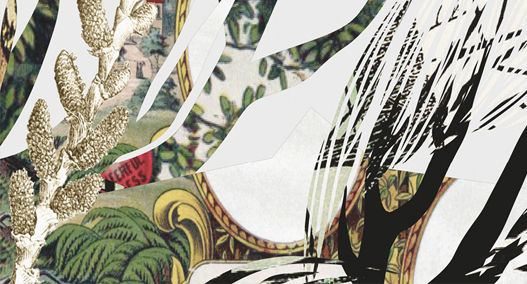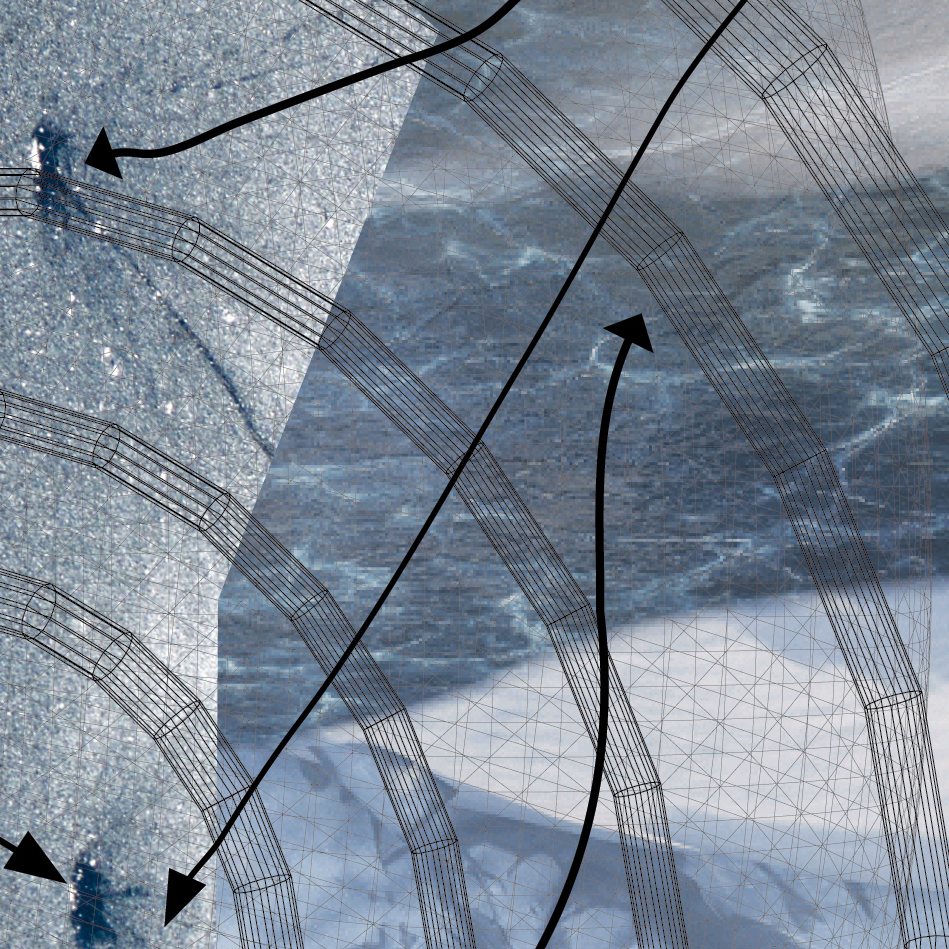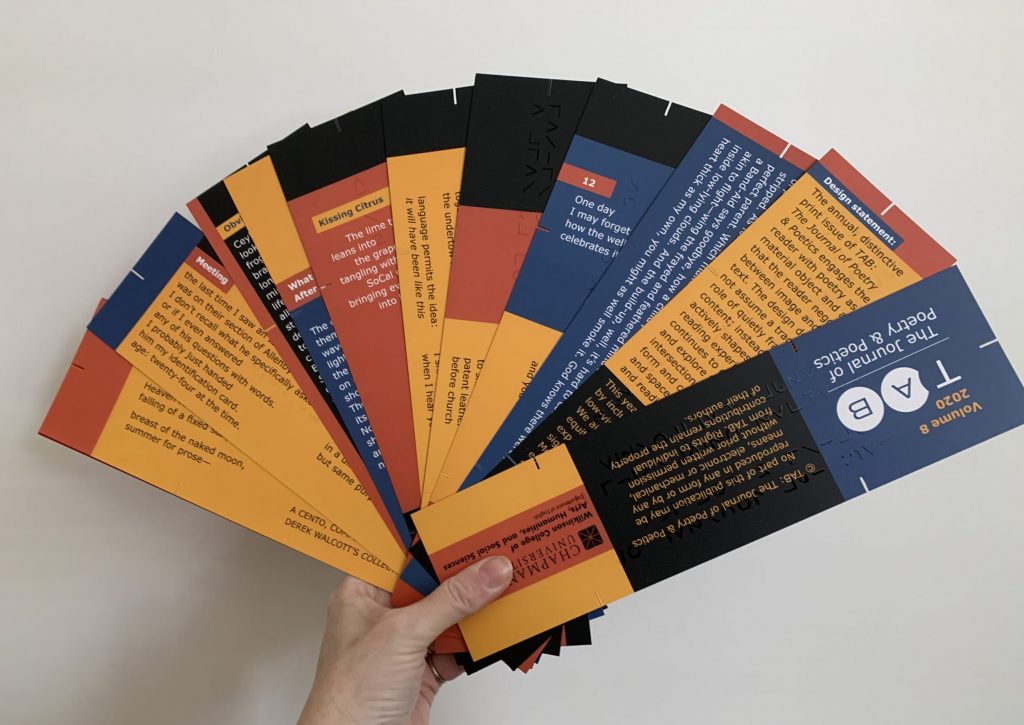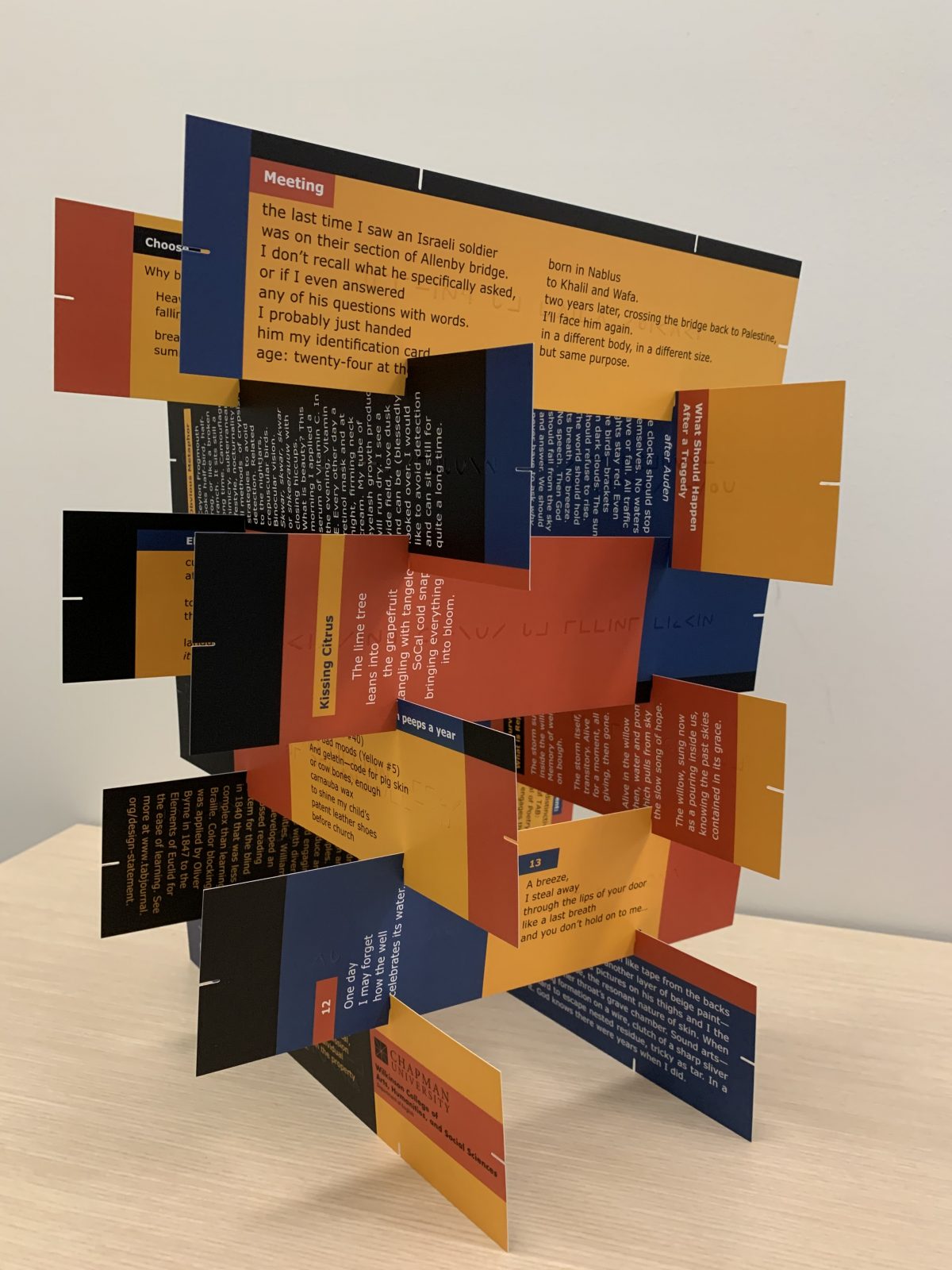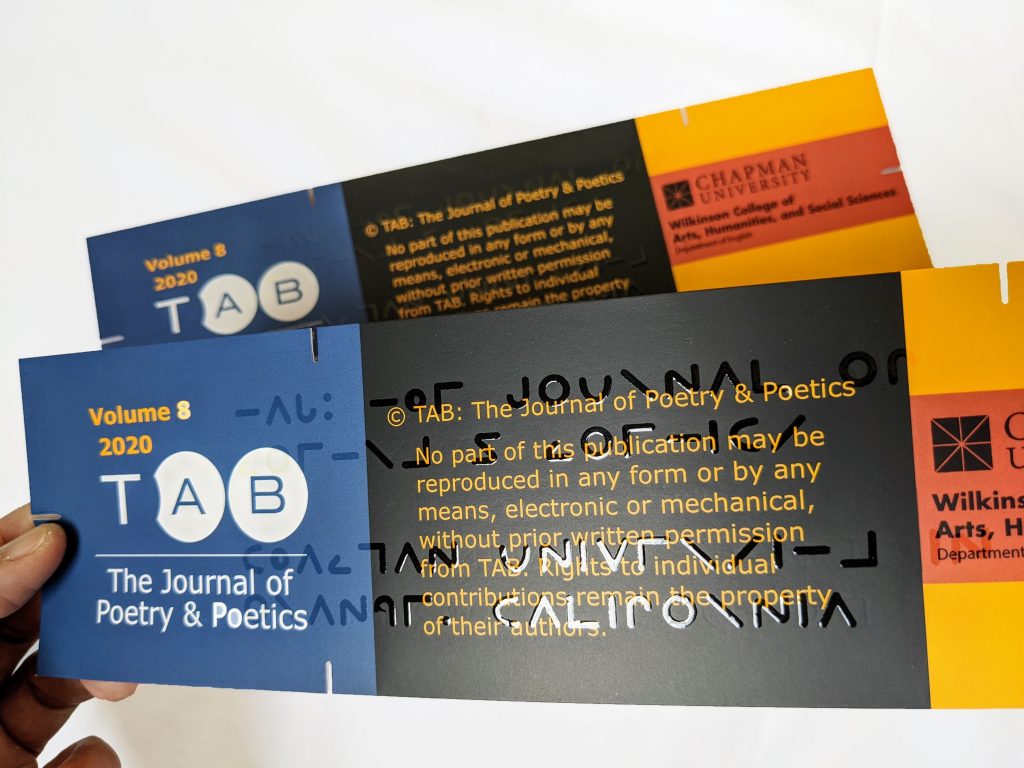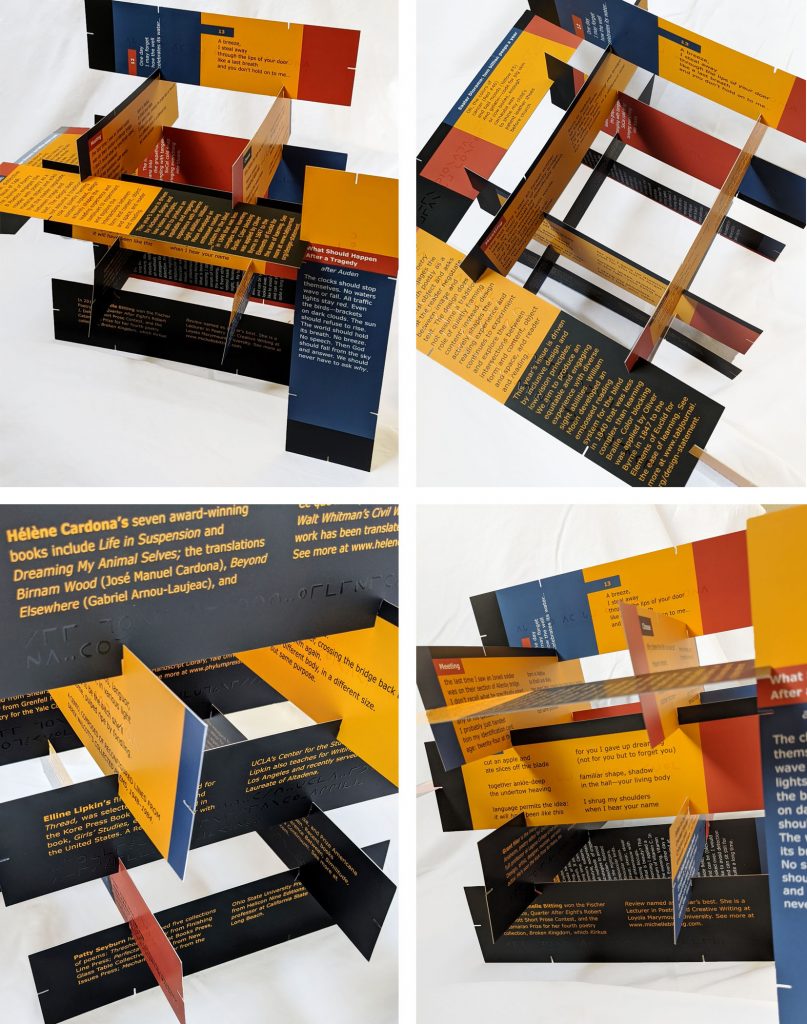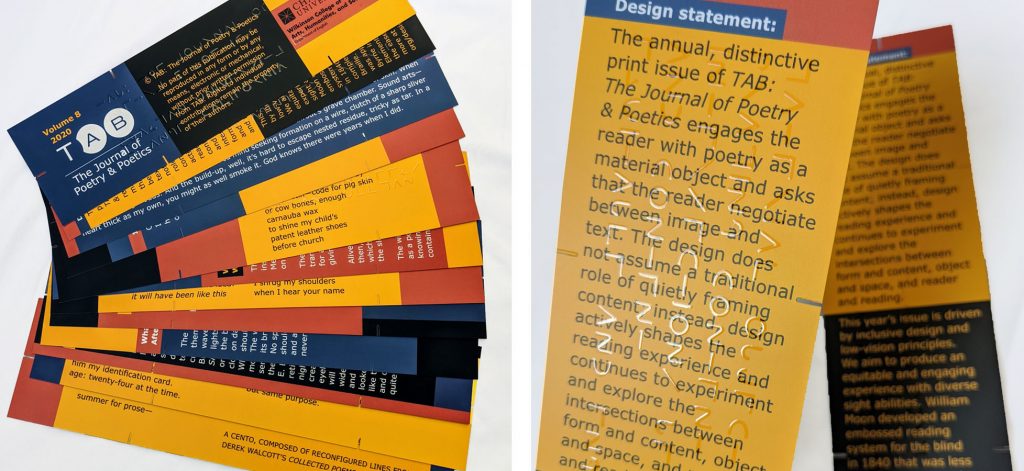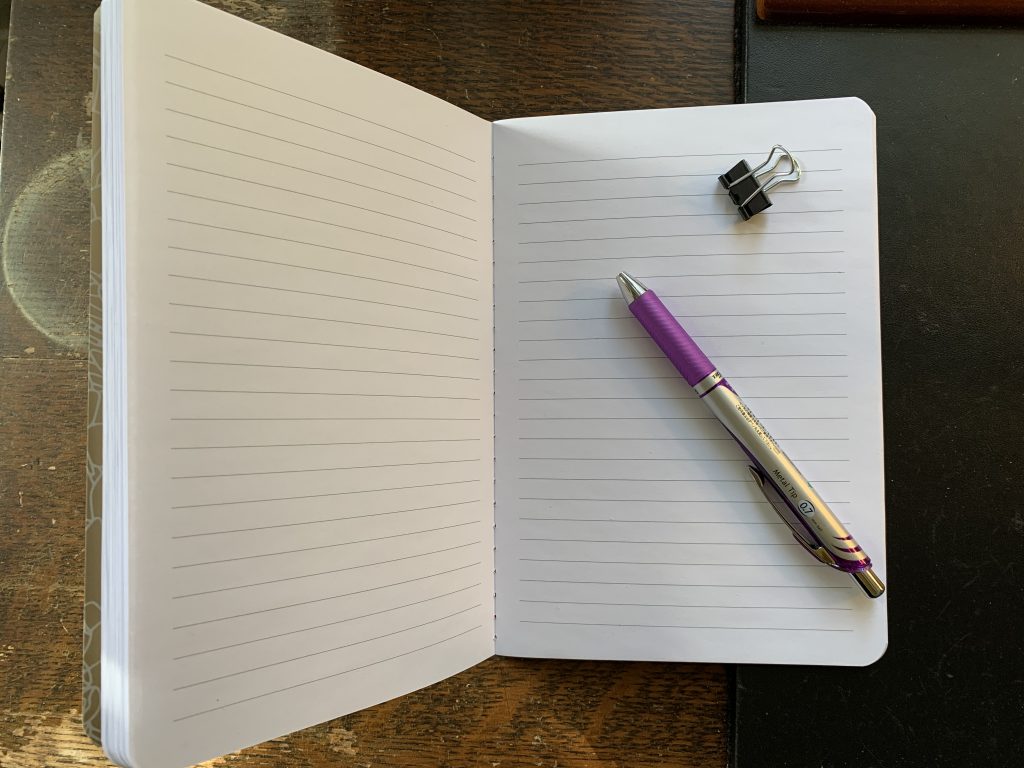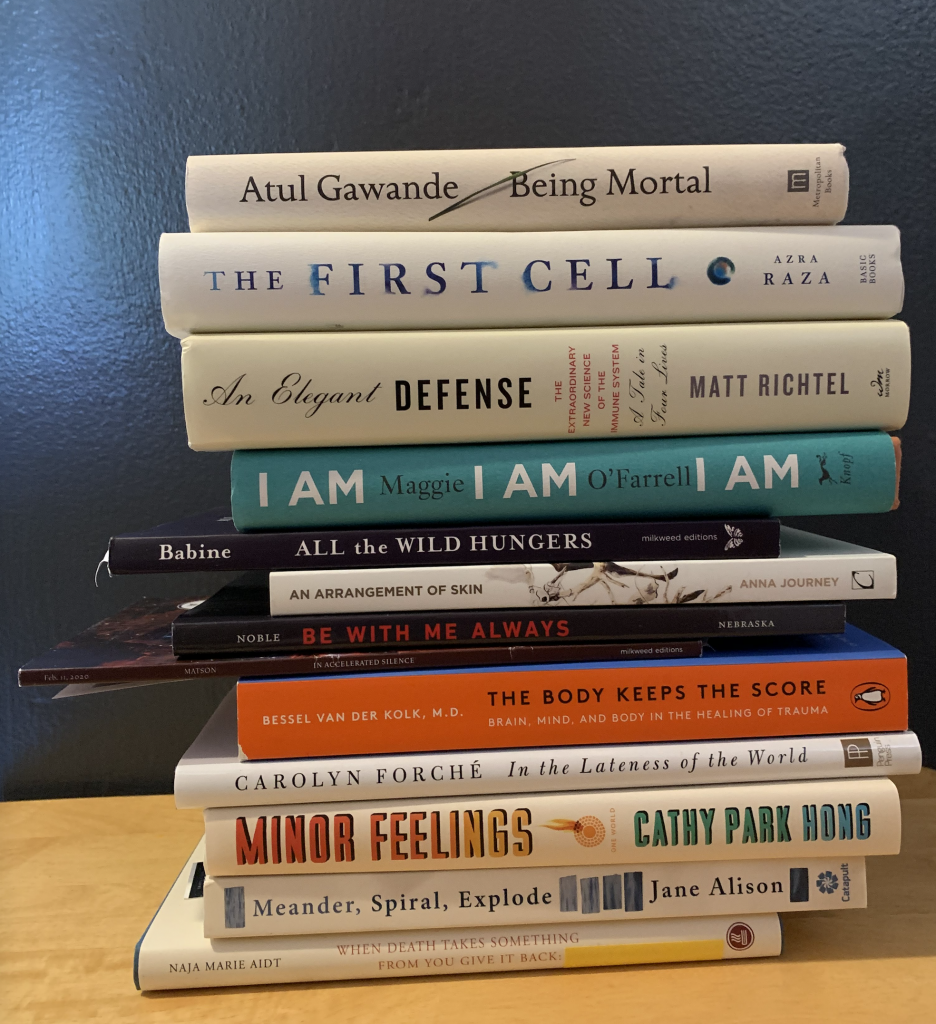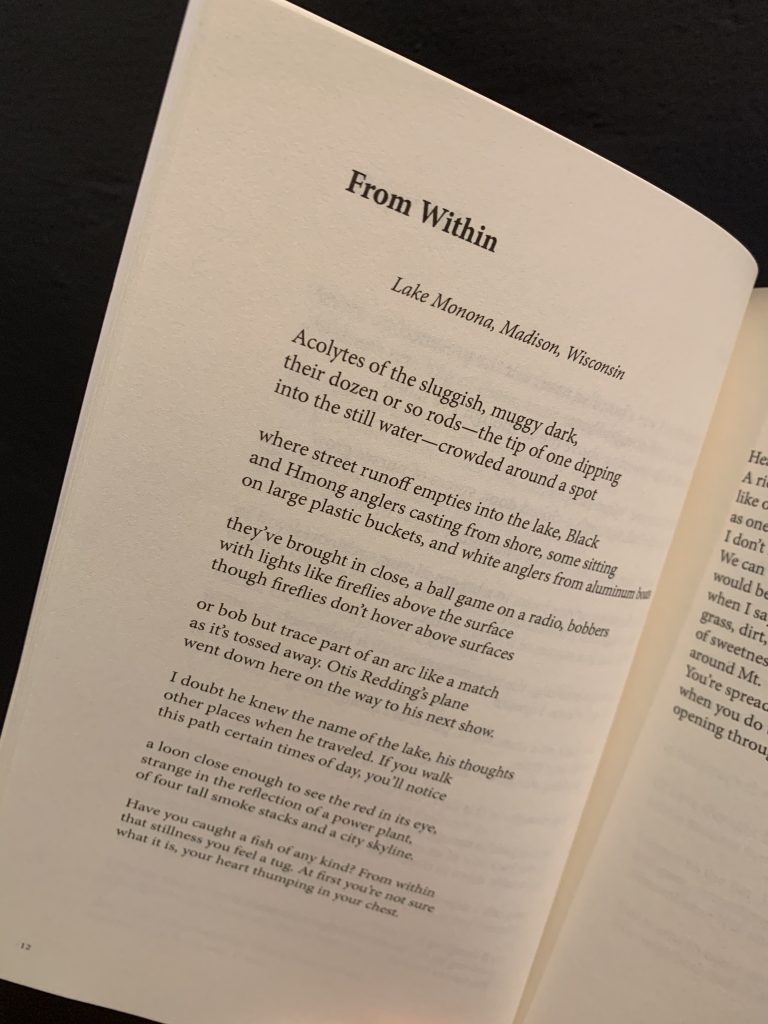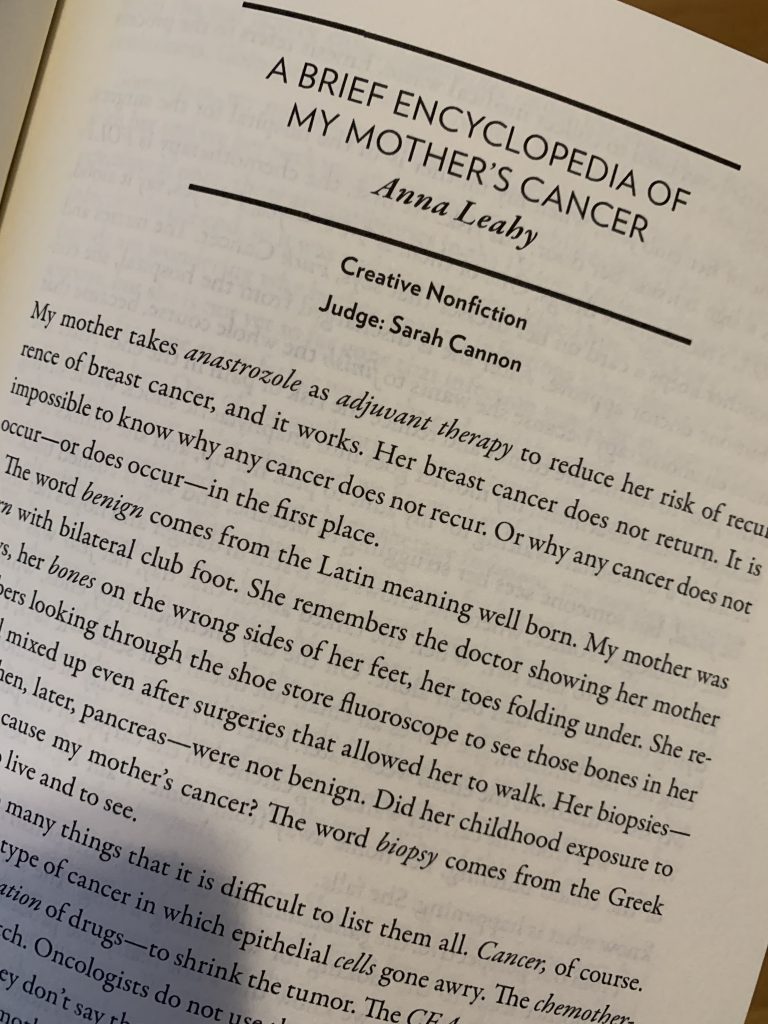Yay! The new print issue of Tab Journal is ready for readers. This issue launches Volume 9 with a large-format design on newsprint and features the work of ten poets, most of whom are making their first appearance in Tab Journal. Before you dive into the poems, we wanted to share this issue’s backstory.

This print issue has been created entirely during a time of quarantine as the world underwent the isolation and anxieties of the Covid-19 pandemic. As a result, we reflected in this issue on concepts of time—as a sense of place, as space, as structure, as the visual experience of light and dark. Time has an impact on psychology; we can lose time or lose track of time. Time has a history of visual representation and documentation as well. This year’s print issue explores visual expressions of time warping, time-traveling, and the chronology and the kaleidoscope of time-keeping. Here, the images and texts engage in ideas of process over time, such as healing or growth.
Also as a result of the pandemic, the Tab staff has very limited access to the office and mail room, and our work continues to be done remotely. We are in the process of getting copies to contributors, not only this issue’s contributors but, as always, to all whose work has appeared in Tab Journal over the entirety of its publication history. We also welcome requests for copies, especially by teachers and librarians to use in discussions and by readers with low hearing; please use the Contact form to make a request. We’re excited to distribute this amazing issue as widely as possible and as soon as possible, given the current constraints.
We hope you’ll look at the Current Issue online and share it with others. Usually, we don’t include the entirety of the print issue online and instead upload only the Table of Contents and elements that convey the new design. Because of pandemic-related delays in mailing, we have uploaded the PDF version of the whole issue as well as audio recordings of all the poems for increased accessibility. Because print offers a very different reading experience than online, we don’t want to replicate the print issue online. The issue uses large-format newsprint, a material mode that further suggests ways we consider time, news, and cultural documents in a so-called post-truth or post-factual age that has seen newspaper staff and circulation decline dramatically. Our website and your screen, therefore, can’t convey how Keith S. Wilson’s poem gallops across the page, and you can’t cut out and fold Amelia L. Williams’s cootie catcher poem to experiment with its possible iterations. Poetry’s ink won’t rub off on your fingers here.
If you’d like to receive a monthly recap of Tab Musings, please sign up for our newsletter. We have lots of plans for 2021! We also encourage you to follow Tab Journal on Twitter and Facebook.

